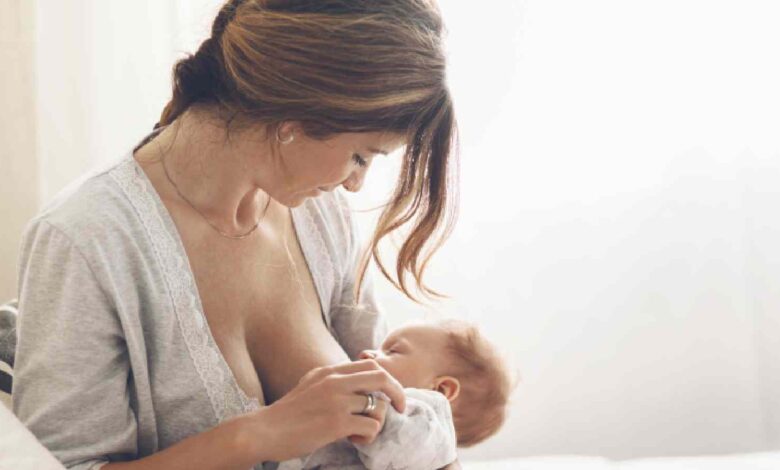Can you breastfeed with pierced nipples?

Nipple piercing might your fashion statement. But you might be worried about it coming in the way of breastfeeding your child. An expert shares if nipple piercing can create breastfeeding problems.
Nipple piercing is often seen as a fun thing to do, but whether you are single, pregnant or a new mom, you can’t compromise on hygiene or safety. If you are a new mother who is still breastfeeding, you need to be extra cautious when you get your nipples pierced. That’s because you also have your baby to think about. So, you might wonder if nipple piercing can affect breastfeeding. Read on to find out what an expert has to say about breastfeeding with pierced nipples.
Health Shots checked with Dr Rashmi Baliyan, Gynaecologist and Obstetrician Consultant, Primus Super Speciality Hospital, New Delhi, regarding breastfeeding and nipple piercing.
Breastfeeding with pierced nipples
Dr Baliyan says that in most cases, women with pierced nipples can still breastfeed successfully. Nipple piercings are not known to damage milk production, as it is something that is produced in your mammary glands. They are located in the breast tissue that is behind the nipple. After child delivery, these glands produce milk and it doesn’t have anything to do with your piercing. However, successfully breastfeeding with pierced nipples depends on factors like the location of the piercing, its impact on the milk flow and any potential complications. While breastfeeding, pierced nipples can potentially cause issues:
1. Blocked milk ducts
Piercings might obstruct milk flow and lead to blocked ducts, causing discomfort. It causes a red and painful lump in your breast, and can lead to infection.
{{{htmlData}}}
2. Reduced milk supply
Nipple piercings can interfere with milk production by affecting the stimulation of milk glands and disrupting the normal breastfeeding process, says the expert.
3. Nipple damage
Jewellery or scar tissue from the piercing can cause nipple trauma, cracks, or fissures, making breastfeeding painful and increasing the risk of infection.
{{{htmlData}}}
4. Choking hazard
Jewellery that is not placed properly or is loose can become dislodged and pose a choking risk to your baby who is dependent on you for food.
5. Infection
Nipple piercings can introduce bacteria into the breast tissue, increasing the likelihood of infection for you and your baby.
Tips to breastfeed with pierced nipples
To safely breastfeed with pierced nipples, you can follow these easy tips –
1. Remove jewellery
Take out the nipple jewellery before breastfeeding to prevent any potential harm to your baby and facilitate proper milk flow, says the expert. There can be choking hazards for the baby.
2. Maintain good hygiene
Keep the pierced area clean to minimize the risk of infection. Regularly clean the piercing with a saline solution or mild soap.
3. Look for complications
Watch out for signs of blocked ducts, infection, nipple damage or nipple pain. If you see any of these problems then seek medical attention.
4. Seek professional advice
Don’t be afraid to check with your doctor about nipple piercing and breastfeeding complications. You can take help from a lactation consultant who can provide personalized guidance and support you throughout the breastfeeding journey.
5. Consider temporary removal of jewellery
Instead of just removing the jewellery during breastfeeding, you can consider
keeping it in a box for a few months. If you experience persistent issues or difficulties, you can temporarily remove the piercing during the breastfeeding period. It is something that might be recommended to promote optimal breastfeeding outcomes.
While some women can easily breastfeed with nipple piercing, others, end up having problems. But it’s best to know about the potential health risks before getting your nipples pierced, especially if you are breastfeeding.
